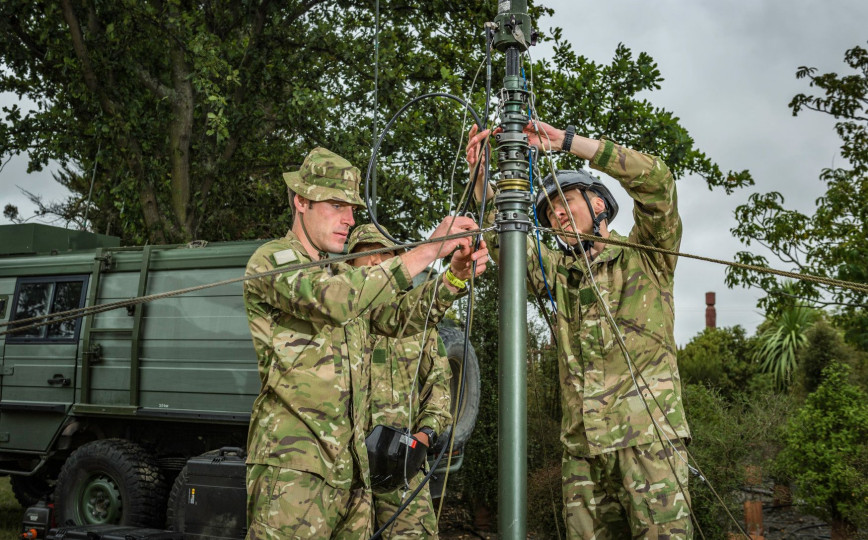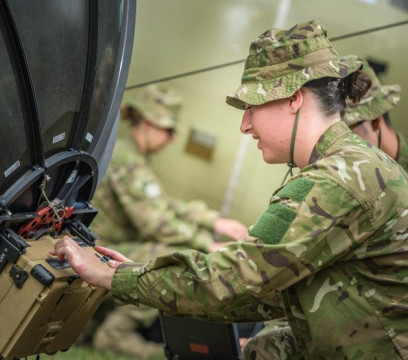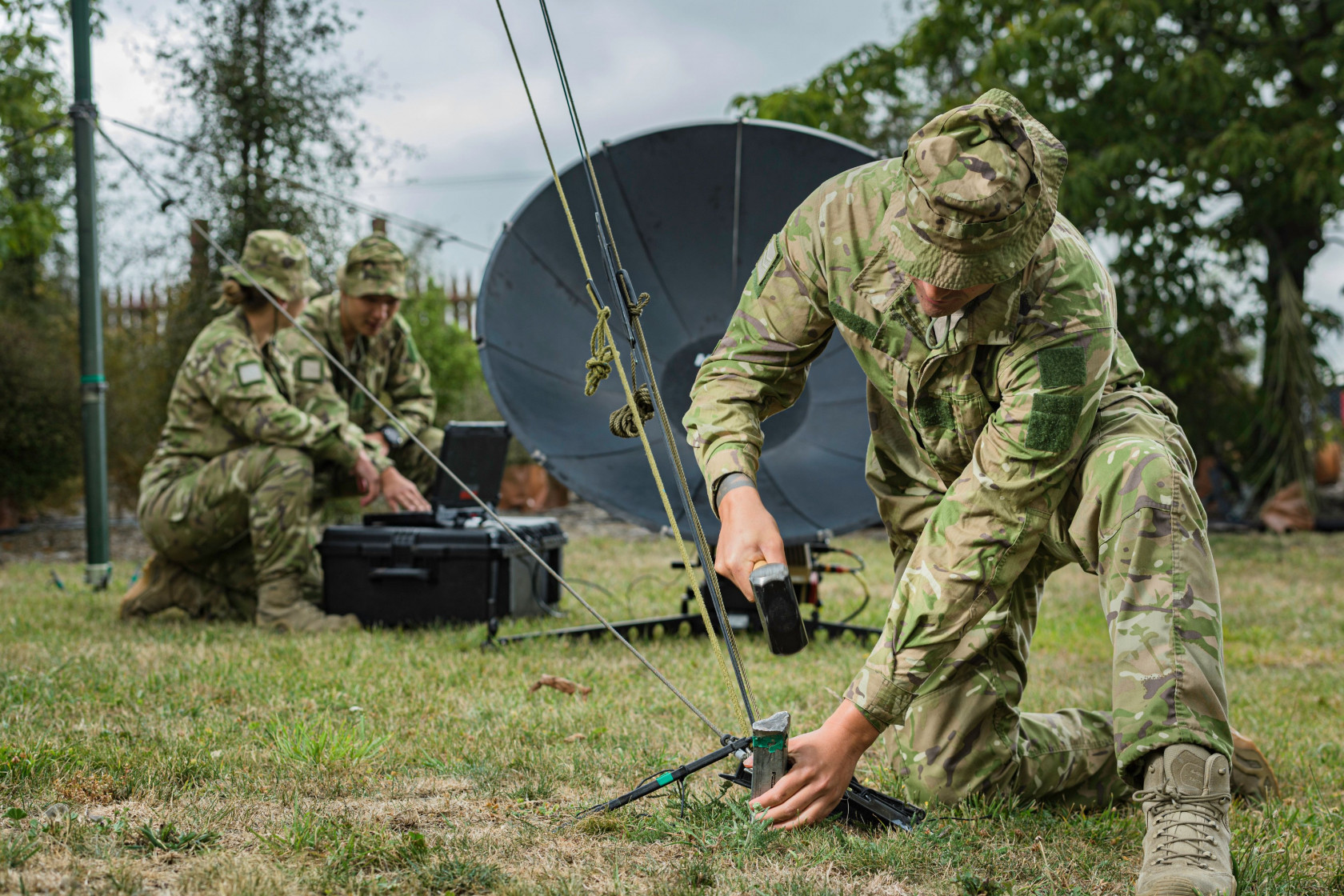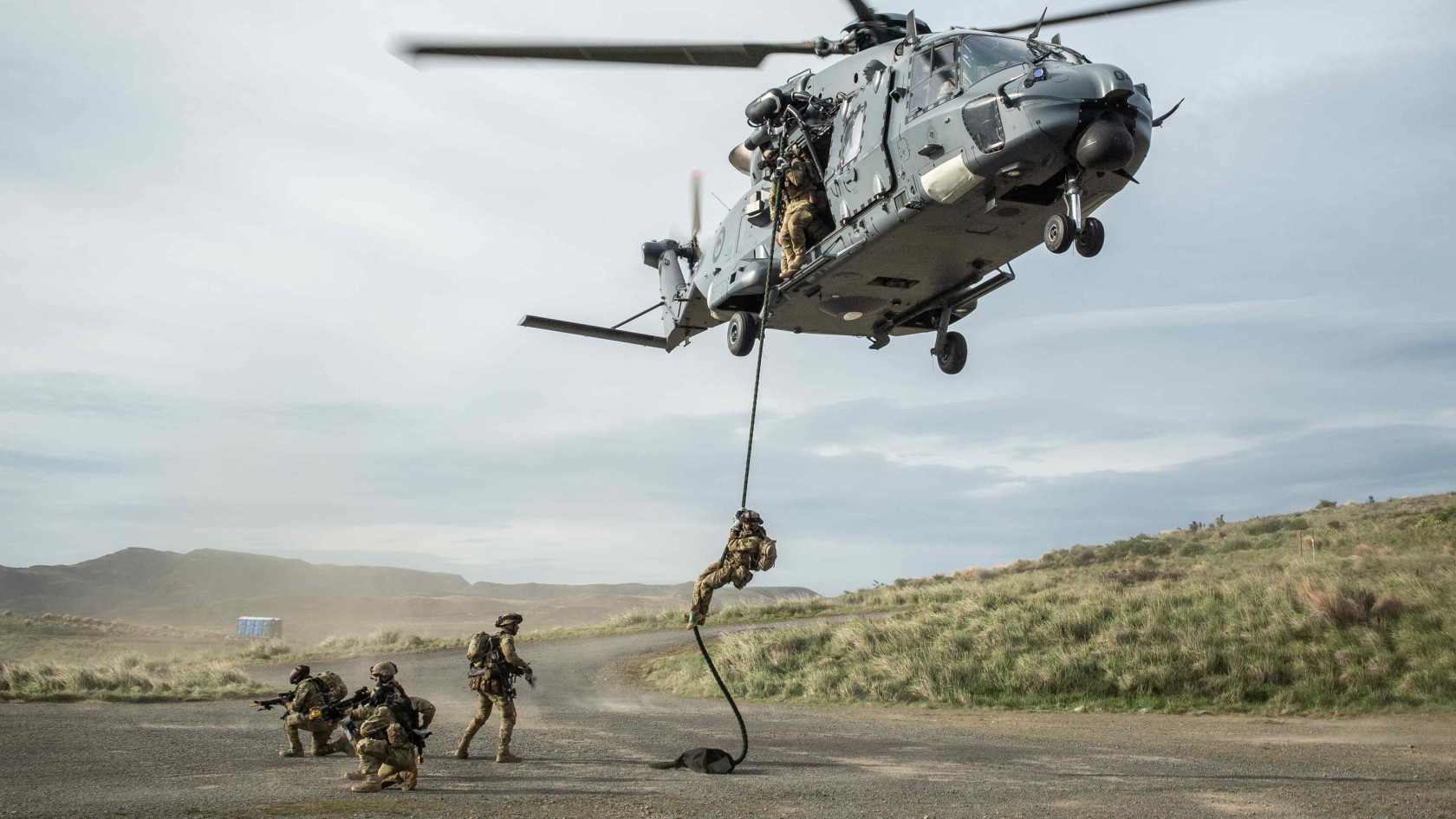
Reserve Radio Frequency Technician
Skip to section:
About the role Training and career progression Salary and benefits Entry requirementsBecome part of a committed team that engineers and manages Radio Frequency networks for the NZ Army. The skills you gain in this trade will help to develop you for future roles within the IT industry.
- ServiceArmy
- SpecialisationArmy Reserve
- LocationPalmerston North | Christchurch
-
Initial daily rate$176


About the role
As a Reserve Radio Frequency technician (RF TECH) your primary role is to provide and maintain Radio Frequency (RF) networks for NZ Army's Communication Information Systems. Your training and employment will see you conducting this role throughout NZ, whilst also providing opportunities for overseas travel.
You will work in a team environment, sometimes in high pressure situations, to enable data and voice networks for effective command and control of NZ Forces. During your training you will learn to operate various military radio systems that cover the HF, VHF, UHF frequency spectrum. You will receive training on military and commercial satellite communications terminals that operate in the Ka, Ku and X band frequency spectrum.
As the NZ Army modernises its RF networks and keeps pace with technological change, your role and skillset will be highly relevant, with opportunities for personal growth and professional development.
Job on base
Your day to day activities will involve working as a member of a Communications Access Node (CAN) Detachment. Within the camp environment, you will be responsible for maintaining and operating Radio Frequency (RF) links and communication equipment. You will also conduct training to stay proficient in general soldiering skills such as physical fitness, weapon handling, medical and vehicle based training tasks. Additionally, as a trained Reserve RF Technician your role may see you interacting with Regular Force and Reserve personnel from other NZ Army units providing training, advice or assistance to meet their specific communication requirements. In the field, you will be responsible for establishing and maintaining RF networks and assisting in Command Post Operations. This will primarily be conducting vehicle based operations, although various scenarios may see you working out of hard standing infrastructure or at times dismounted in support of other units.
Training and career progression
Training overview
Mod 1
Mod 2
Corps Training
Initial training consists of three stages which equates to approximately 7 weeks of training. Module 1 (Introduction to the New Zealand Army and Reserve Force service) is conducted throughout the calendar year, with Module 2 (Basic Training) & Corps Training (Initial Trade Specific Coursing) taking place in November, December and January of a given year.
Module 1 (Introduction to the New Zealand Army and Reserve Force service) is conducted across New Zealand at specified times throughout the calendar year. This course is run in Auckland (Whangaparāoa Leadership Centre or RNZAF Base Auckland, Whenuapai), Wellington (Trentham Military Camp) or Christchurch (Burnham Military Camp). Your Candidate Engagement Facilitator will outline the intended MOD 1 location as part of your initial application to join the ResF.
Module 2 (Basic Training) is conducted at Waiouru Military Camp. This is a 38 day residential course, taking place across November, December and January of a given year (duration accounts for leave period over the Christmas and New Year period).
Corps Training (Initial Trade Specific Training) consists of a two week residential course at Linton Military Camp, Palmerston North. Personnel who complete Module 1 and Module 2 will be posted to their unit (1 SIGNALS SQUADRON), and will be informed of the corps training model in due course. This course is likely to run in 2023.
MODULE 1 - Introduction to the New Zealand Army and Reserve Force Service
The purpose of this stage of training is to familiarise recruits with the Army, and Reserve Force service prior to their attendance at the Recruit Territorial Force All Corps Basic (Module 2 - Basic Training).
This is a two day introduction to life in the Army. Over this period, you will be attested into the New Zealand Army, learn the basics of drill and command, Military Law, the Ethos and Values of the NZ Army and the particulars of Reserve Force service. You will also be taught how to live and operate within the military environment and learn about the standards that are required of you as a soldier.
MODULE 2 - Basic Training
The aim of this course is to develop the individual skill set required of a soldier operating at a basic level of capability. This stage of training is a 38 day residential course conducted upon your arrival at Waiouru Military Camp.
During this stage of your training you will be introduced to:
- Drill
- First Aid
- Operate and communicate utilising in-service communication systems
- Introduction to the Individual Weapon, Modularised Assault Rifle System – Light (IW MARS-L) and light support weapon (LSW-C9)
- Live firing on the range in order to qualify on the IW MARS-L Annual Weapons Qualification
- Introduction to and qualification on the high explosive grenade
- Living in a field environment, including:
- patrolling procedures,
- operating in a rifle section, and
- fieldcraft and battlecraft
- Introduction to Physical Training, including the Army Fitness Test, swim test and timed pack walk, and
- A broadened understanding of military law, including “The Laws of Armed Conflict”
This stage of initial training concludes with a recruit's graduation from the NZ Army training establishment - The Army Depot. Recruits will graduate as a fully qualified soldier (rank of Private/Sapper/Gunner/Trooper/Signaller) in the NZ Army’s Reserve Force, ready to progress on to initial trade specific coursing.
Corps Training - Initial Trade Specific Coursing
This course is a two week residential course held at Linton Military Camp, Palmerston North. The course dates and structure of this stage of training have yet to be confirmed. It'll likely run in 2023, immediately following the conclusion of Basic Training in Waiouru. Personnel will be posted to their unit, and duly advised.
All personnel will continue to build on the foundational knowledge obtained through Basic Training, with trade specific and ongoing training continuing to refine outputs focused on operations within the combat battlespace. All personnel will train annually to maintain the tenets of the soldiering profession (Move, Shoot, Communicate and Medicate).
As Reserve Radio Frequency Technician (Signaller) you are required to complete fundamental training courses, including:
- Introdution to Royal New Zealand Signals,
- Foundation of communication information systems Electronic Warfare principles,
- Familiarity of RNZ Signals power systems,
- Voice and Data systems and procedures,
- Command Post operations and procedures, and
- Command and Management of command, control, communications and computer systems.
After completing intial trade training and gaining a few years of experience within the RNZ Signals Squadron, you may be selected to complete a Detachment Commanders course. This will see you in command of the vehicle and the personnel within the Signals detachment, responsible for sustaining command and control systems across the battlespace.

Salary and benefits
As a Reservist you are paid on an hourly rate rather than a salary. Pay rates depend on the role you are in and your rank; your pay will increase as you move through the ranks.
As an Army Reserve soldier, the minimum remuneration you will be paid from day one is a daily rate of $176 including holiday pay, plus 4% Kiwisaver employer contributions. Your remuneration will continue to increase on promotion and seniority.
$176
Initial daily rate
Entry requirements
Basics
Education
Fitness and Medical
Citizenship
- You must be at least 17 years of age
- Preferably hold a Class 1 restricted driver's licence
NCEA Level 2 certificate.
Find out more about the NCEA levels and certificate requirements
- You must be medically fit for service.
- You must meet the minimum entry fitness standards.
- Colour perception restrictions may apply.
There are strict citizenship and security requirements to gain the required SV security clearance for this trade.
Find out if you’re eligible here.
